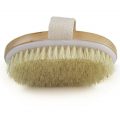With too many imperfections that take root in the skin, such as pimples, acne, wrinkles, and uneven textures, skincare is perhaps the most important aspect of your beauty routine. While addressing the more common problems, including acne and pimples, might be easy, skin texture can be a difficult problem to solve.
Of course, everyone wants the best skin texture that is soft and smooth but achieving it can seem impossible. The causes that condition the skin and create those uneven textures include countless reasons, some of which can not be helped, such as genetic influences. To efficiently improve your skin texture, you would have to identify these problems and apply the necessary treatment.
Consider that the skin is an organ, like the heart, lungs, liver, and kidneys, and keep in mind that all the conditions you subject it to will influence its health. From the basics of your diet to the continued treatments of beauty products that you apply to it, all of these will condition your skin.
Here we will take a look at all the most common problems and conditioning to provide you with an effective solution against them. Ultimately, given some time, you will improve the texture of your skin.
3 Ways to Improve Skin Texture on Your Face
The Sun
The sun is one of the greatest factors to consider when it comes to skincare. It is entirely impossible to avoid the sun, and while we must gain some exposure to sunlight, too much of it will be unhealthy. Sun damage can be the cause of many things, including aggravated aging signs, but in this case, more importantly, it influences the texture of your skin.
The sun’s harmful rays, which include UV-A and UV-B, can dry out your skin rather quickly, enlarge pores, and are known to be the leading cause of skin cancer and aging. It may at all be possible to hide the greater surface of your skin from the sun, but the face, however, is exposed all the time.
Even if you wear large brimmed hats and use an umbrella, exposure to the sun is never limited to such an extent that it would protect you from the harmful conditioning of sunlight. There are ways to reverse the damage done by the sun to your skin, but, as the famous proverb goes, prevention is better than the cure.
The most effective way to avoid sun damage to the skin is by wearing an appropriate sunscreen. What would be even better for improving the texture of your skin would be a sunblock that both protects against the full spectrum of UV-light and moisturizes the skin at the same time.
Using foundations and concealers that hold sunscreen properties would also be a good idea. The key rule to prevent sun damage is to always wear sunscreen, especially on the face. If you are looking to reverse the damage caused by sunlight exposure, you could use any number of skin renewal creams, some of which even contain sunscreen.
A good example of this would be CeraVe’s Skin Renewing Cream that contains essential ceramides, hyaluronic acid, and encapsulated retinol, which all work together to smooth skin texture, fine lines, and protect against the broad spectrum of sun rays.
Dehydrated Skin
Another essential factor that influences your skin’s texture, which can be both prevented and cured, is dehydration of the skin. Again, the sun may be the greater cause of dehydration, but plenty of other conditioning also plays its parts. Wearing sunscreen will eliminate the most significant influence; however, hydrating the skin remains essential.
Dry skin becomes flaky and produces a lot of dead skin cells that, apart from causing acne and pimples, also influences the texture of your skin. Dry skin will also tend to produce more oil as a natural defense, which, in return, will lead to imperfections developing.
The best treatment that works as both a cure and prevention is to use a good moisturizer. A moisturizer will restore the balance of your skin, prevent all of the problems associated with dehydration, and in turn, provide your skin with a balanced texture.
Exfoliation
Exfoliation is a specialized process that requires matching the right product to your skin type. General skin types vary from normal, which possess a balance between dry and oily, dry, which is naturally dryer than most skins, and oily, which generally produces higher oil concentrations than other types of skin. You will need to assess your skin type before deciding on what product to use.
There are also two exfoliating methods. One is by manual scrubbing using facial brushes, washcloths, and any similar product, or by chemical dissolving using peels of various. Exfoliating is the process of removing dead skin cells from the outer layer of your skin, which will provide you with the smoothest skin you can dream of.
Exfoliating is the most effective way to improve skin texture, but always remember that over-exfoliating could lead to future complications and needs to be adapted to your specific skin type. Dry skin types should only exfoliate at most twice a week and should use products that contain moisturizers, or if manually exfoliating should be followed up with moisturizing. Oily skin has a naturally higher tolerance allowing more exfoliating time.
Oily skin types can exfoliate up to five times a week and should use products with acids such as salicylic or glycolic acids. Despite the higher tolerance, oily skin should moisturize with every exfoliation. Normal skin can exfoliate up to three times a week, but it is recommended to start slowly so you can gauge what your skin can handle.
Normal skin should be moisturized after every exfoliation, and you should look for products that contain granular sugar, walnut shells, and light amounts of acid.
Conclusion
There are no miracle cures or treatments to obtain the healthiest skin texture, and all treatments and preventions will take time to smooth your skin. Apart from the treatments mentioned here, you can also visit a dermatologist for unique treatments such as laser resurfacing and other methods that would be of great benefit. However, if you cannot afford it, the treatments and preventions mentioned here will be beneficial.
The best advice would be to follow a strict routine that is adapted to suit your skin, wear sunscreen, apply healthy exfoliation, and use retinoid creams to improve your skin’s general health. You could also look for products that are rich in Vitamin C, as this will also help to balance and improve the texture of your skin.





